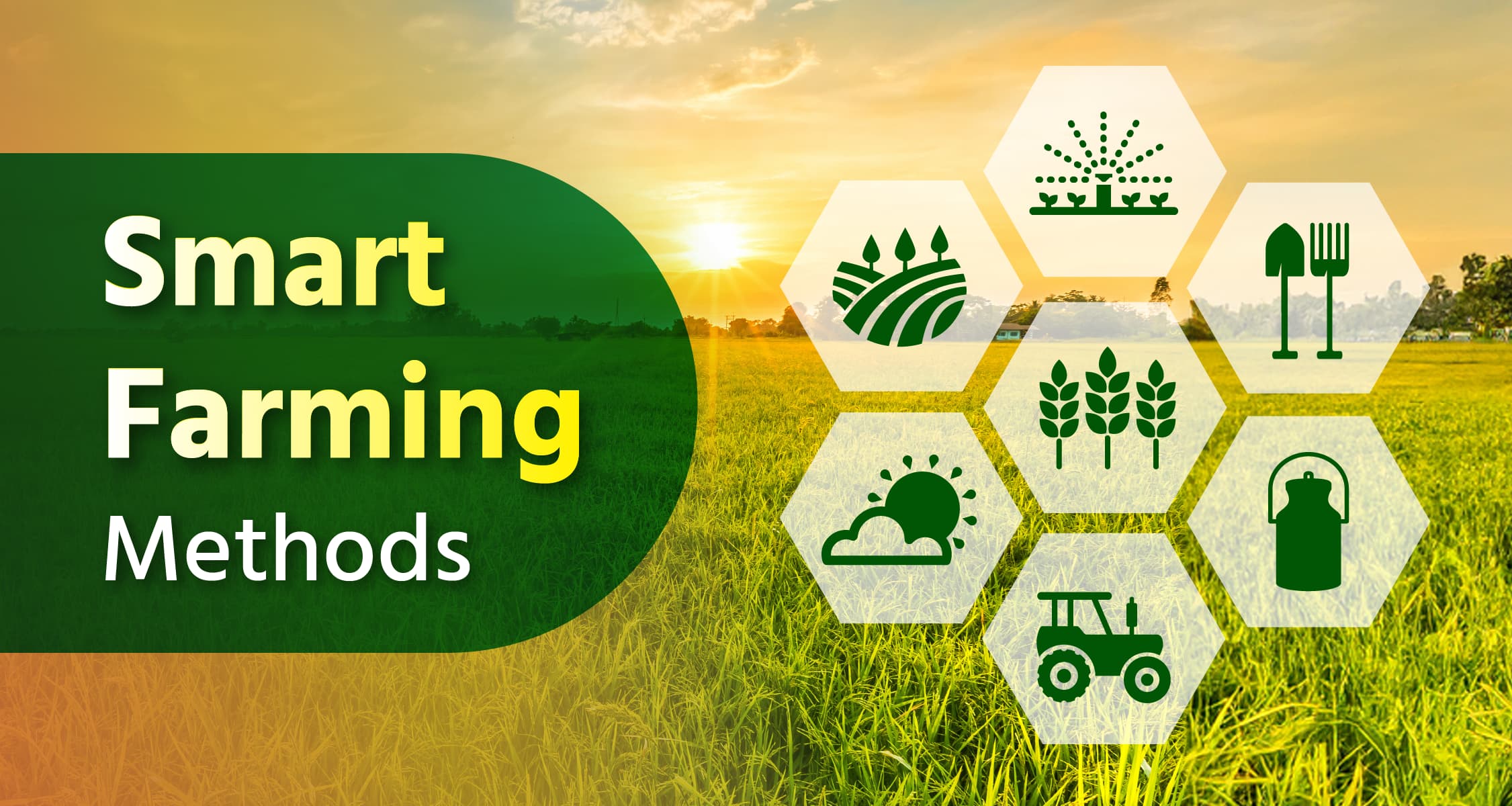Smart Farming: An Overview

Smart farming refers to the use of modern agricultural techniques and advanced tools to enhance productivity, efficiency, and sustainability in farming. Unlike traditional farming, smart farming involves the use of various technological tools such as sensors, drones, GPS, and Artificial Intelligence (AI). In this post, we will explore the various aspects of smart farming, its benefits, challenges, and prospects.
What is Smart Farming?
Smart farming is an agricultural system that utilizes scientific and technological tools to carry out farming activities. This system provides farmers with real-time information about their crops, climate, soil quality, and other agricultural factors. Based on this information, farmers can make necessary adjustments to their farming practices, leading to increased production and optimized use of resources.
Smart farming encompasses various technologies, including precision farming, drip irrigation, artificial intelligence, and IoT (Internet of Things). By using these technologies, farmers can monitor their crops, manage water resources, and control the use of seeds and fertilizers.
How Smart Farming is Different from and Superior to Traditional Farming
There are several key differences between smart farming and traditional farming. In traditional farming, farmers usually rely on experience and hit & trial, whereas smart farming relies on scientific data and technological tools.
- Traditional farming requires a large amount of water for irrigation, whereas smart farming uses drip irrigation and water management techniques to conserve water.
- In traditional farming, fertilizers and pesticides are often used indiscriminately, which can be harmful to the environment. In smart farming, fertilizers and pesticides are used with precision, maintaining soil fertility and protecting the environment.
- Smart farming leads to increased crop productivity, while in traditional farming, productivity often remains stable or depends on weather conditions.
- Smart farming uses techniques to reduce environmental impact, which is often not a primary focus in traditional farming.
Benefits of Smart Farming
Smart farming offers several benefits, making it favorable for both farmers and the environment:
- Increased Productivity: The use of advanced technologies in smart farming leads to higher crop productivity, allowing farmers to harvest more crops in less time.
- Cost Reduction: Smart farming optimizes the use of resources such as water, fertilizers, and pesticides, thereby reducing costs.
- Environmental Protection: Smart farming promotes the sustainable use of water and energy, resulting in a lesser negative impact on the environment. Organic fertilizers and biogas are also used to maintain soil fertility.
- Climate Change Adaptation: Smart farming techniques help address challenges posed by climate change. For example, drip irrigation and water management techniques can be used in drought and flood conditions.
Challenges of Smart Farming
Despite the many benefits of smart farming, there are some challenges in adopting it:
- Initial Costs: The use of advanced equipment and technologies in smart farming comes with high initial costs.
- Lack of Technical Knowledge: In rural areas of India, farmers often lack the knowledge and training needed to adopt smart farming techniques.
- Infrastructure Limitations: The necessary infrastructure for smart farming, such as internet connectivity, electricity, and precise equipment, is limited in many areas.
- Weather and Climate Change: The uncertainties of weather and climate change can make it difficult to adapt smart farming techniques.
Future of Smart Farming
With the rise in global population and the increasing demand for food, the future of smart farming looks promising. Through new technologies and innovations, smart farming can significantly enhance farmers' productivity and profitability.
- Latest Technologies: The development of technologies like drones, robotics, and AI can make smart farming even more effective. In the future, these technologies will encourage the use of autonomous machines and equipment in farming.
- Data-Driven Farming: With data analysis and AI, farmers will be able to make precise decisions based on weather, climate, and market trends.
- Sustainable Farming: Smart farming will assist in achieving sustainable development goals by conserving natural resources and increasing food production.
Current Status of Smart Farming in India
- Smart farming is expanding in India, but it still faces several challenges to be adopted on a large scale. Various initiatives by the government and the private sector are being undertaken to promote smart farming technologies.
- The government has taken several steps to encourage smart farming through schemes like the Pradhan Mantri Krishi Sinchayee Yojana, the National Mission on Sustainable Agriculture, and e-NAM.
- Several private companies are also coming forward to promote smart farming technologies by providing farmers with smart tools and training.
- Smart farming is not only crucial for the agricultural sector but also for the country’s food security and economic development.
Have you ever used modern technologies to improve your farming practices? Share your responses and experiences with us in the comments. For detailed information on modern technologies related to agriculture and animal husbandry, follow the ‘Krishi Tech’ channel now. Don’t forget to like and share this post to help spread this information to more farmers.
Frequently Asked Questions (FAQs)
Q: What does smart farming mean?
A: Smart farming refers to the use of advanced technologies such as sensors, drones, and artificial intelligence to optimize agricultural production. It involves collecting and analyzing data to make informed decisions about crop management, irrigation, and fertilization, among other things. The goal of smart farming is to increase efficiency, reduce waste, and improve yields.
Q: What is the purpose of smart agriculture?
A: The purpose of smart agriculture is to enhance the efficiency and productivity of farming operations while minimizing negative environmental impacts. By using advanced techniques like precision agriculture, farmers can optimize crop yields and conserve resources such as water and fertilizers. Smart agriculture also helps improve food security by ensuring a stable supply of high-quality crops.
Q: What are the benefits and drawbacks of smart farming?
A: The benefits of smart farming include increased efficiency, productivity, and profitability, as well as reduced environmental impact and improved food security. However, the drawbacks include high initial investment costs, the need for specialized skills and knowledge, and potential privacy and security issues related to the use of data and technology.
जारी रखने के लिए कृपया लॉगिन करें

फसल चिकित्सक से मुफ़्त सलाह पाएँ
